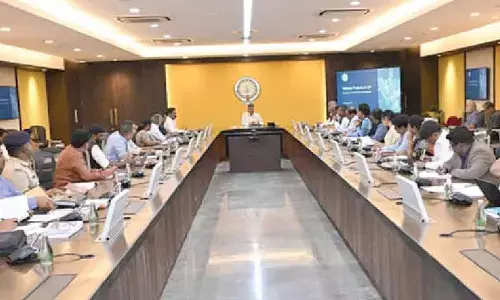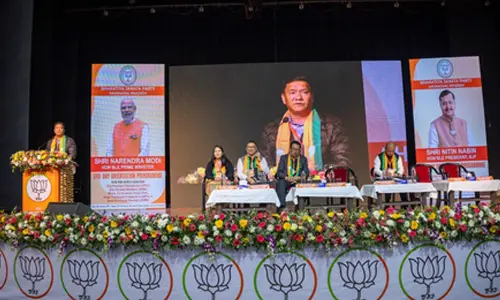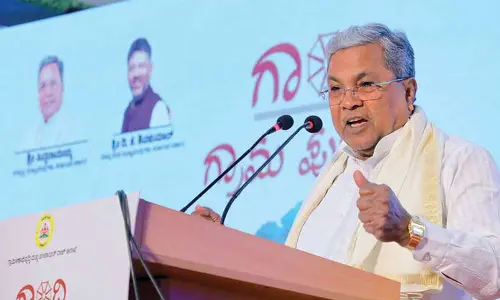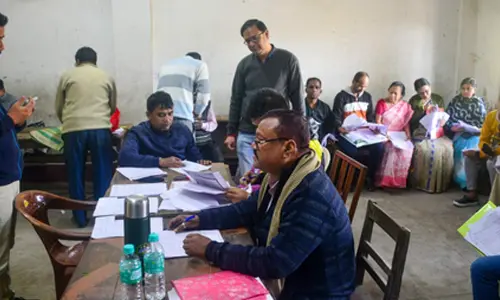How the GATT was given effect

How The GATT Was Given Effect. The GATT (General Agreement on Trade and Tariff) agreements changed the economy of the country and altered the foreign policy of Government of India leading to liberalisation and privatisation of various economic and business activities. One citizen wanted to know how the GATT agreement was given effect to.
The GATT (General Agreement on Trade and Tariff) agreements changed the economy of the country and altered the foreign policy of Government of India leading to liberalisation and privatisation of various economic and business activities. One citizen wanted to know how the GATT agreement was given effect to.
Under RTI none could seek answers to questions or interrogate an authority. He cannot also seek opinion of office or officers. But all the questions were not barred by RTI Act. The questions for which answer is available in a particular record with a specific office or available in different records with different offices, the same need to be collected and be given to the information-seeker. There is one exception to this; if information sought requires diversion of substantial resources of the public authority, it can be denied. Whether it involves diversion of resources and is that substantial are the questions of fact to be proved in each case.
Dileep Nevatia filed an RTI Application seeking information against six points relating to International Treaties entered into by Government of India and in particular General Agreement on Trade and Tariff dated 30.10.1947 and 15.4.1994.
His questions are: Whether signing of an International Treaty by Government of India by itself amounts to executive order as contemplated under Article 73(1) (b) of the Constitution of India? Whether an Executive order is necessary to give effect to an International Treaty entered into by Government of India? Whether an Executive order is not necessary to give effect to an International Treaty entered into by Govt. of India.
The PIO replied on 7.10.2010 stating that the information sought does not fall under the definition of ‘information’ as defined u/s 2(f) of the RTI Act. First Appellate Authority agreed with the PIO. Appeal reached the Information Commission at New Delhi.
As per Article 253 of Constitution, Parliament has power to make any law for the whole or any part of the territory of India for implementing any treaty, agreement or convention with any other country. This provision does not bar an executive order/action to give effect to International agreement, entered into by India. The respondent, who is the Ministry of Law and Justice, has a very significant role in guiding the Government in this regard. The Vienna Convention on the Law of Treaties (VCLT), considered as treaty of treaties has come into force in 1980. It has formulated that states could sign, ratify or accede to the International Treaties and Conventions. India being signatory to this VCLT, the Government/Ministry of Law is under an obligation to disclose how the treaties such as GATT 1947 and GATT 1994 were given effect to, which was sought by appellant.
Here the appellant is not seeking the opinion or advice of the Respondents or their PIO. The process of giving effect to such significant treaty should have been born by record or some document. The applicant wanted to know whether these two agreements were signed, ratified or acceded to or any other process was adopted.
The nature of questions it appears that the subject matter pertains to Constitutional law and International Law. If any responsible authority looks into these provisions and practices that were adopted by the state, answer will be ready. I, after hearing both the sides, considered that the Ministry of Law and Justice will be appropriate authority to furnish the information culling out from law (both municipal and international) and the processes adopted to give effect to GATT. That department will be befitting if such information is provided as a response to this RTI application.
Officers from Ministry of Law & Justice submitted that their officers would write the advice on the file of the authority which sought and hand over it back to them. It is clear from this that it is part of the record. It was submitted that such advice was written on the file which was returned to the department which sought it. That means some other public authority holds it and such information was generated by respondent and held by another public authority within the government.
The direction is: The respondent ministry has a duty to furnish the relevant information to the appellant. If the ministry holds any documents regarding this process, as sought by the appellant, shall be given, or in the alternative the respondent should have transferred that part of RTI application or that particular question (d) to the authority on whose file the advise was written regarding giving effect to GATT 1947 and GATT 1994.
The nation has a right to know whether GATT was ratified by executive order or cabinet decision etc. The RTI Act does not permit PIO to question the purpose for which the information was being sought. But when the information sought is about to fall within the exceptions or restrictions, the applicant has to explain the interest or public purpose. If the information is open or in public domain, there is no need to explain the purpose of seeking information. How the GATT is given effect to be a significant question which has inherent public interest in it. It does not fall under the ambit of restrictions at all.
(The writer, Information Commissioner, New Delhi, can be reached at [email protected])















